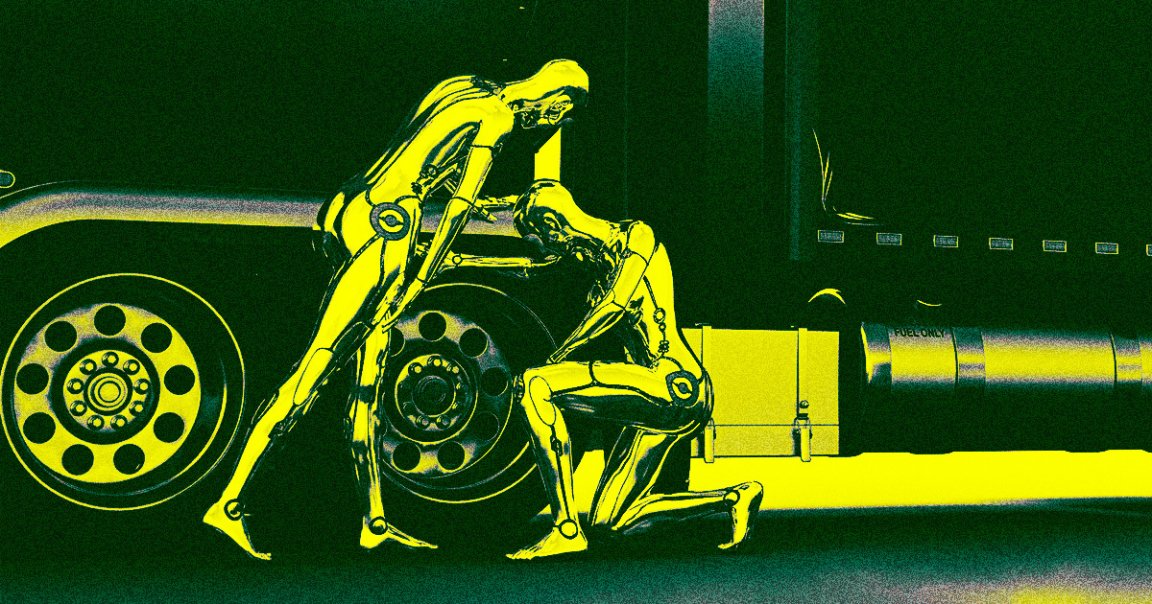
Car Talk
Remember those talking GPS monitors from the early-to-mid-2000s? They’re back with a vengeance and will soon be AI-enabled, even though it’s unclear who asked for that.
In a press release, the GPS company TomTom announced that it’s teaming up with Microsoft to equip cars with a generative AI assistant named “Tommy” that will, for some reason, let people converse with their cars.
“If you’ve ever dreamed of being able to talk to your car as if it were KITT,” the statement reads, making a deep-cut reference to 80s television, “your dream might soon be reality.”
Using various Microsoft AI services, including its Azure OpenAI large language models (LLM), TomTom’s new offering sounds like it will be like a yassified Siri or Alexa for your vehicle, enabling drivers to look up directions and other “infotainment” tools.
Curiously enough, the companies had beef before they ever collabed. Back in 2009, when GPS monitors were still a huge thing, Microsoft sued TomTom for allegedly violating Linux software patents. In response, the GPS company filed a countersuit claiming Microsoft had violated its patents. To settle the dispute, TomTom went ahead and bought the initial offending software, and by 2016, the duo announced an official collaboration.
Emotional Machines
Like many companies that have invested — or perhaps over-invested — in AI, TomTom’s people have given some pretty telling soundbites about how excited they are to be working with robots.
“Generative AI is going to add an emotional layer to interaction with the car,” Gianluca Brugnoli, the company’s VP of design, said in the press release. “It will know where you’re driving, your physical [well-being] and will adapt the driving experience and the technology in the cabin to match the experience each driver seeks.”
As with everything else in the so-called “AI revolution,” it’s hard to imagine who asked for an AI assistant that lets one talk to their car “Knight Rider” style, and it’s more difficult still to try to parse why TomTom seems to be indicating that it wants to create a vehicular, vibes-based FitBit when that is so far outside the realm of consumer wants or needs that it’s nearly laughable.
TomTom, a vestige of the dot-com era, is clear trying to claw back relevance in a world where everyone has maps on their smartphones — and for some reason believes “Tommy” will take them there.
More on AI-enabled cars: Teslas Crash More Than Any Other Brand, Analysis Finds